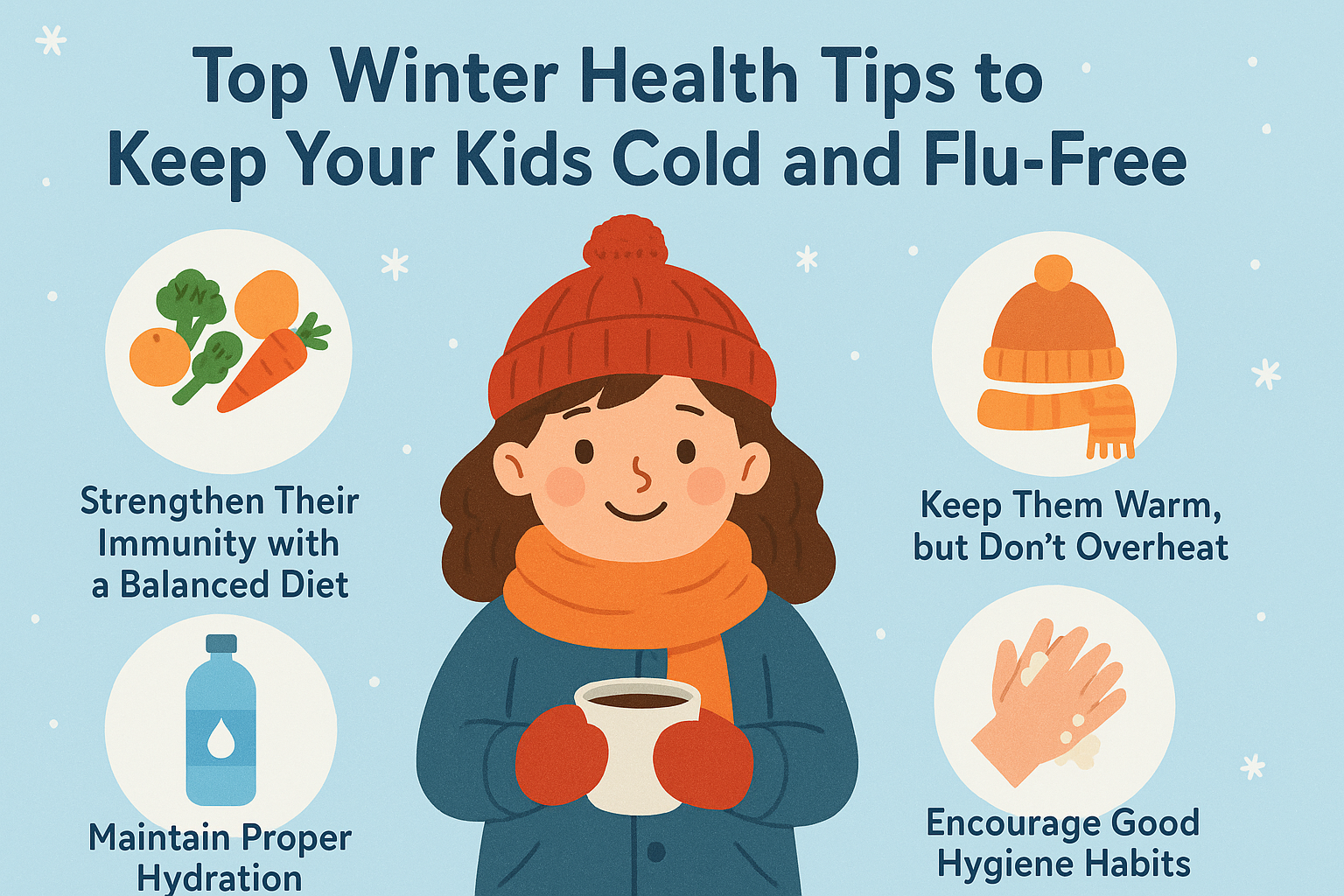
As the chilly winds roll in and temperatures drop, parents everywhere brace themselves for the season of sniffles, coughs, and colds. Winter can be tough on kids’ immune systems, especially when they’re exposed to fluctuating temperatures and germs at school or play. However, with a little extra care and some smart habits, you can keep your children healthy, warm, and happy all season long. Here are some top winter health tips to help your kids stay cold and flu-free.
1. Strengthen Their Immunity with a Balanced Diet
Good nutrition is the foundation of strong immunity. Make sure your child’s meals are packed with seasonal fruits and vegetables rich in vitamins and antioxidants. Citrus fruits like oranges and amla provide vitamin C, which helps fight infections. Include warm soups, leafy greens, carrots, and nuts in their daily diet. Foods rich in zinc (like lentils, seeds, and eggs) and probiotics (like yogurt) also play a key role in boosting immune health.
2. Keep Them Warm, but Don’t Overheat
Layering is key during winter. Dress your kids in comfortable, breathable layers rather than bulky clothes that make them sweat. Sweating and then getting exposed to cold air can cause chills and increase the risk of catching a cold. Choose soft, skin-friendly fabrics like cotton or bamboo for inner layers and wool or fleece for outerwear. Always make sure their head, hands, and feet are covered when stepping outside.
3. Maintain Proper Hydration
Many parents assume kids don’t need as much water in winter — but that’s a common mistake. The dry winter air can cause dehydration, even if children don’t feel thirsty. Encourage warm drinks like soups, herbal teas, or warm water with honey and lemon to keep their bodies hydrated and their throats soothed.
4. Encourage Good Hygiene Habits
Colds and flu spread quickly through sneezing, coughing, and touching contaminated surfaces. Teach your kids to wash their hands regularly with soap, especially before meals and after coming home from school or play. Remind them to avoid touching their face frequently and to cover their mouth and nose with a tissue or elbow when sneezing. Keep hand sanitizers handy for times when washing isn’t possible.
5. Prioritize Sleep and Rest
A well-rested body is better equipped to fight infections. Ensure your child gets enough sleep every night — preschoolers need 10–12 hours, while older children should get at least 8–10 hours. Create a cozy bedtime routine, limit screen time before bed, and maintain a consistent sleep schedule even on weekends.
6. Keep Their Environment Clean and Moisturized
Indoor heating can make the air dry, leading to irritated nasal passages and dry skin. Use a humidifier in your child’s room to maintain moisture in the air. Regularly clean toys, doorknobs, and frequently touched surfaces to prevent germ buildup.
7. Encourage Outdoor Play (Safely)
Fresh air and sunlight are great immunity boosters. Allow your kids to play outdoors during the warmer hours of the day. Just ensure they’re dressed warmly and avoid contact with visibly sick children.
By following these simple winter health tips, you can help your kids enjoy the season without the constant worry of colds and flu. A mix of nutritious food, good hygiene, adequate rest, and a little sunshine can go a long way in keeping your little ones healthy and smiling all winter long.



